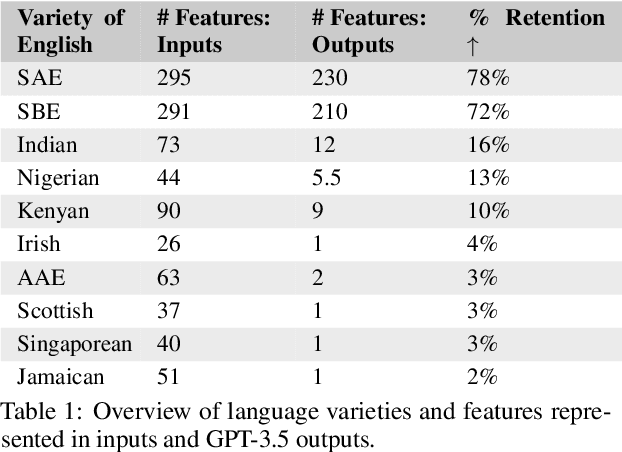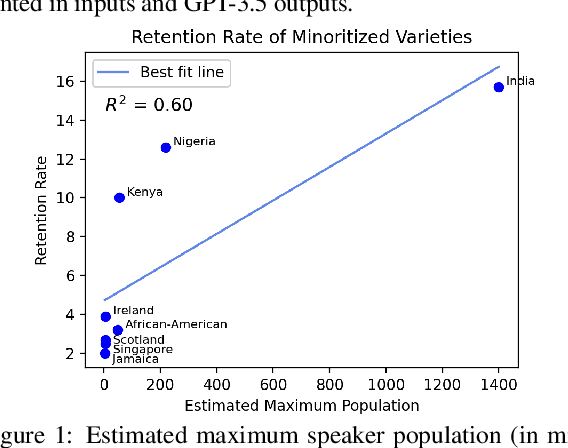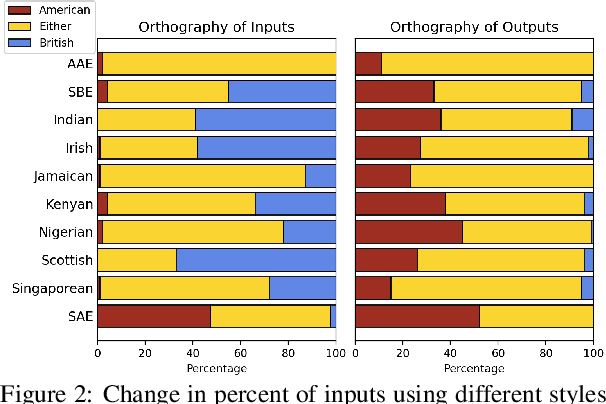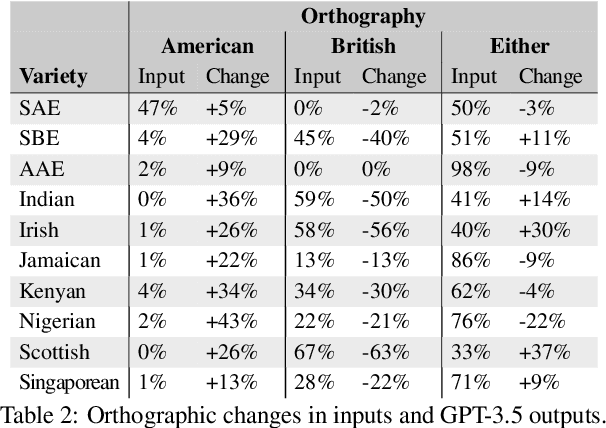Linguistic Bias in ChatGPT: Language Models Reinforce Dialect Discrimination
Paper and Code
Jun 13, 2024



We present a large-scale study of linguistic bias exhibited by ChatGPT covering ten dialects of English (Standard American English, Standard British English, and eight widely spoken non-"standard" varieties from around the world). We prompted GPT-3.5 Turbo and GPT-4 with text by native speakers of each variety and analyzed the responses via detailed linguistic feature annotation and native speaker evaluation. We find that the models default to "standard" varieties of English; based on evaluation by native speakers, we also find that model responses to non-"standard" varieties consistently exhibit a range of issues: lack of comprehension (10% worse compared to "standard" varieties), stereotyping (16% worse), demeaning content (22% worse), and condescending responses (12% worse). We also find that if these models are asked to imitate the writing style of prompts in non-"standard" varieties, they produce text that exhibits lower comprehension of the input and is especially prone to stereotyping. GPT-4 improves on GPT-3.5 in terms of comprehension, warmth, and friendliness, but it also results in a marked increase in stereotyping (+17%). The results suggest that GPT-3.5 Turbo and GPT-4 exhibit linguistic discrimination in ways that can exacerbate harms for speakers of non-"standard" varieties.
 Add to Chrome
Add to Chrome Add to Firefox
Add to Firefox Add to Edge
Add to Edge